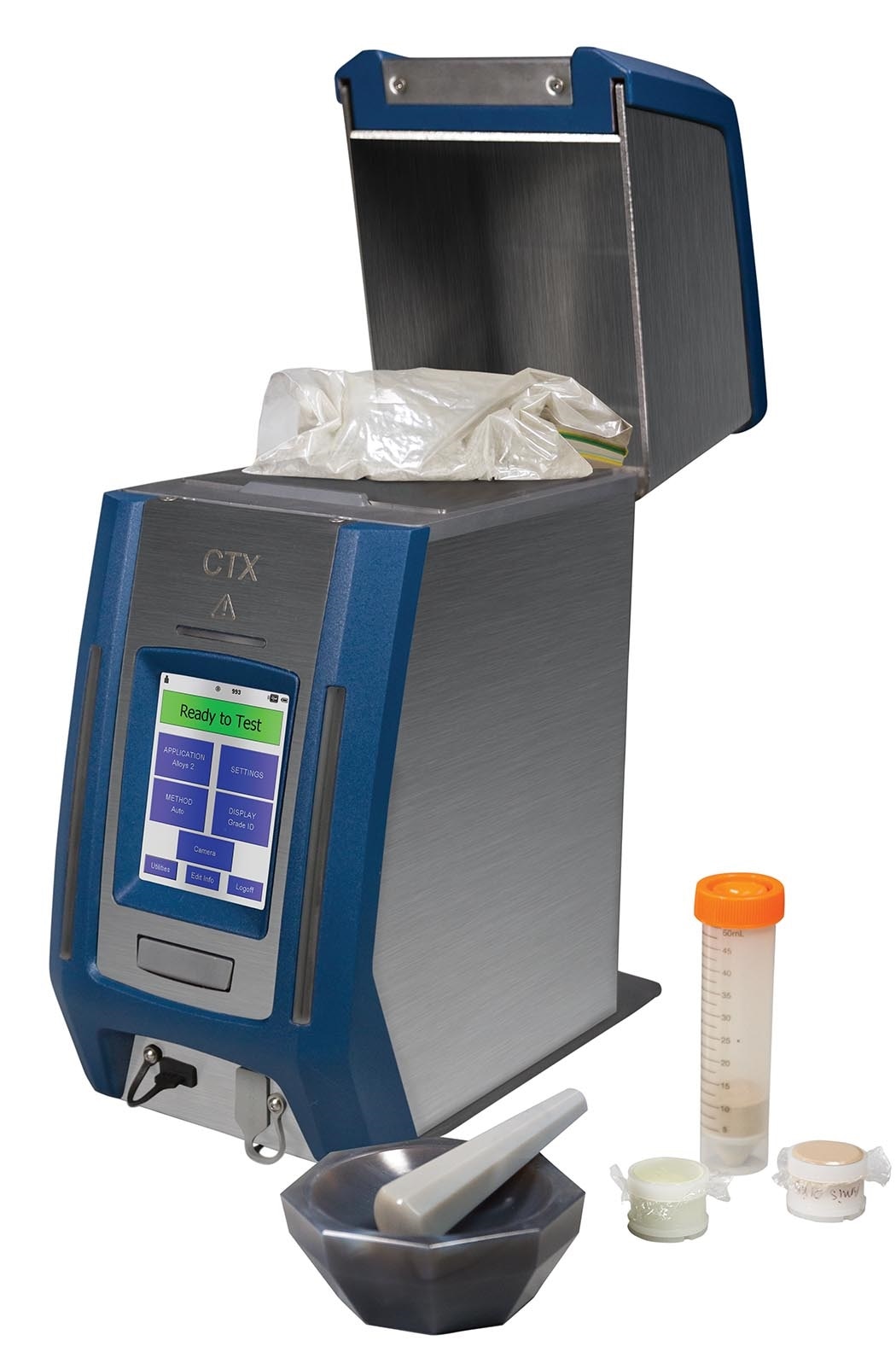Bruker today introduces the new CTX™ X-ray fluorescence (XRF) elemental analyzer. The portable Counter Top XRF (CTX) is small, light-weight, safety-interlocked, and battery operated. At less than 7 kilograms in weight, the self-contained CTX is truly portable, and has a small footprint of 14 cm in width.

The new CTX uses a 4W X-ray source featuring Bruker's patented SharpBeam™ optimized X-ray geometry, a high-performance silicon drift detector (SDD) with Bruker's patented DetectorShield™, as well as Wi-Fi, Bluetooth® and USB connectivity. The CTX's touchscreen user-interface provides measurement control and results display. Additionally, Bruker's Toolbox PC software enables full remote operation of the CTX and optional PC software includes Bruker's Artax™ for advanced qualitative, semi-quantitative composition analysis, as well as EasyCal™ for user-defined empirical correlations.
The CTX is available in several configurations optimized for different industries and applications, such as minerals and mining, food safety and agriculture, pharmaceutical raw materials, precious metals, polymers, and marine fuel oil analysis. It is specifically designed for applications which require sample preparation and/or sample presentation in a cup or bag, as well as for small samples and samples which require measurement times of more than a few seconds.
While the CTX was primarily designed for deployment in mobile and field labs, it is also well suited to central labs and on the factory floor for quick pre-screening or routine analysis, and as a back-up for larger XRF or ICP/AA systems.
John Landefeld, Executive Vice President of the Bruker's Handheld-Mobile-Portable XRF products, commented:
We are excited to introduce the CTX to the market, as it is a truly portable, safety-interlocked XRF analyzer, complementary to our S1 TITAN™ and TRACER™ handheld XRF instruments, and incorporates multiple suggestions from customers who need accurate and precise elemental analysis in a high-performance, portable XRF configuration."
Alexander Seyfarth, Global XRF Technology Manager at SGS Minerals, stated: "As a global service and testing company with many remote labs in the minerals segment, we need rugged field-portable XRF equipment that can provide SOPs and generate reproducible results. The CTX configuration with its reversible sample plate is great; it solves a lot of problems in terms of reproducibility of sample positioning. Additionally, the easy-to-clean sample chamber and stainless-steel body are a real plus since most of our remote labs are in very dusty and dirty environments. The shielded, interlocked feature will reduce license requirements for us when transporting and using portable XRF in the many locations we serve. The CTX software allows us to make calibrations for each site using our own laboratory derived site-specific reference material, as on a larger XRF unit. We are happy that our early input into the development process was incorporated so well."
Dr. David C. Weindorf, Associate Dean for Research (CASNR), Professor and B.L. Allen Endowed Chair of Pedology (PSS) at Texas Tech University commented: "We do a lot of soil screening out in the field, and most of our projects require geo-referenced, in-situ measurements for which handheld XRF is perfect. However, we are expanding our research work in vegetation, compost and liquid samples, and I can see the CTX being ideal for those samples. We also do a lot of correlations with ICP, and the CTX would be a real plus in the lab to screen samples before deciding if lower trace level ICP measurements are even needed."
Source: Bruker